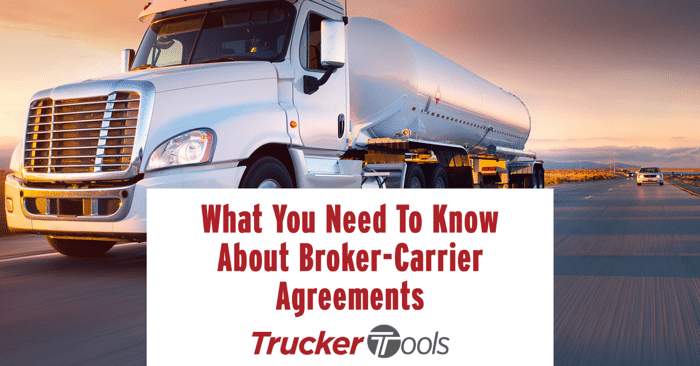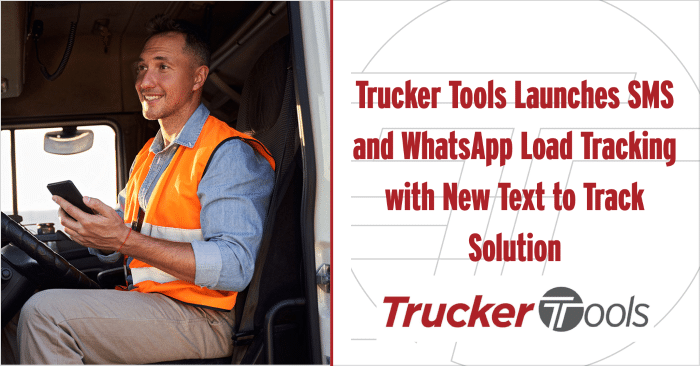As a carrier dispatcher, owner operator or the owner of a trucking business, you’re required to enter into a binding, legal contract in order to move shipments for freight brokers. These contracts, broker-carrier agreements, define who is responsible for what, how and when you’ll be paid for the load, as well as other requirements for both parties. You may hear freight brokers refer to the broker-carrier agreement as a “carrier packet.” The broker-carrier agreement is an important document that you should pay close attention to because it defines the limits of the contract, how much you’ll be paid, what materials you’ll be transporting, whose insurance will cover theft and/or damages, and whether or not you’ll be required to issue a Bill of Lading.
What a Broker-Carrier Agreement Includes
In the broker-carrier agreement, you are asked for your MC number and the official name and address of your trucking company. The broker will need to supply similar information. The agreement also will include start and end dates for the contract and pickup and delivery details, as well as any limitations on where the cargo can be transported. If the broker expects you to load or unload the shipment or provide other accessorial services as part of the delivery, that will be included in the broker-carrier agreement, as well. The agreement may specify whether the freight can be moved by a sub-contractor, too.

Freight rates and fees are defined in the broker-carrier agreement, including shipping costs, fuel rates, customs/taxes, handling fees and any other expenses. The document should specifically address and when and how you’ll receive payment for transporting the load. The contract covers who will be held financially responsible for lost or damaged freight. In most cases, as the carrier you are guaranteeing the safety and security of the shipment when it’s in transit, which is why you will have to show proof of insurance. There also should be a section of the contract that deals with dispute resolution between you and the broker and how it would be handled. Once you sign off on the broker-carrier agreement and its terms, it’s a legally binding contract.
Mistakes To Avoid
Over the last few years, double-brokering scams and freight fraud have increased considerably. That’s why it’s always important to look at the Schedule of Insurance Coverages and Freight Loss or Damage sections of the broker-carrier agreement. These sections of the document outline the type of insurance coverage needed to haul the load. Always ensure that your insurance will cover the total value of the load, particularly if you’re transporting high value freight.
It’s now also more common for broker-carrier agreements to include information about how the broker wants to track the load once you’ve picked it up. The contract may mandate that your drivers use a specific digital load tracking technology or ELD so that the broker and shipper can view the real-time, GPS-based location of the load while it’s in transit.
Finally, if anything in broker-carrier agreements or subsequent rate confirmation sheets raise red flags, do your homework. If something looks suspicious, you can always verify the broker’s status and other information on the F.M.C.S.A.’s website. After verifying that the broker has a current license and active surety bond (BMC-84) through the F.M.C.S.A., you can request a copy of the freight broker’s operating authority.
Be sure to check out our “2023 Trucking Forecast with Adam Wingfield.”
To download Trucker Tools’ free driver app, visit https://www.truckertools.com/carriers-toolkit/. To start using Trucker Tools’ free carrier software platform, visit https://bookaload.truckertools.com/.






